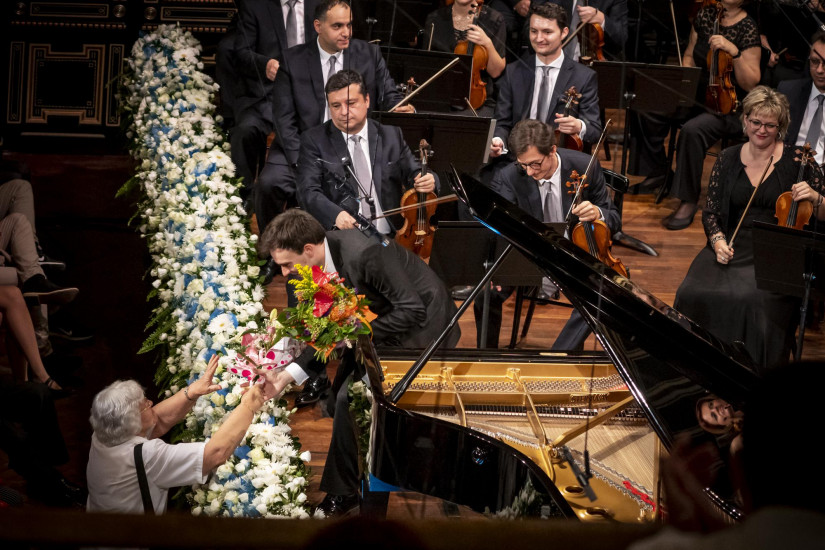“Bartók has to be second nature to you”
He was born in the United States and lives there, but speaks perfect Hungarian and has been drawn to Bartók’s music since the very beginning. Peter Klimo took the stage with Bartók’s Piano Concerto No. 3 at the orchestral finals of the Bartók World Competition.
You live in Los Angeles, but your parents are Hungarian. What did Bartók mean for you before this competition?
My love of Bartók and of the Hungarian character that permeates all his pieces dates back earlier. While I was not brought up in Hungary, Hungarian blood does run through my veins, which I think is a greater force than any acquired identification. Bartók has to be second nature to you. It is something you might not be able to learn.

Do you remember your first significant encounter with music tied to Bartók?
I started playing the piano at the age of nine, and initially it was Liszt’s world of music that touched me most. The spirit of The Hungarian Rhapsodies and their melodies. It was a direct path from there to Bartók, and it was Romanian Folk Dances that I discovered first.
What does it take to explore and understand the internal logic of Bartók’s pieces?
A command of Hungarian is very important. It may not even be possible to find a piece that does not reflect the intonation and rhythm of Hungarian. The DNA of Hungarian culture is simply innate to Bartók’s music. I have a dear Chinese friend, a violist, whom I have often accompanied, and he wanted to learn The Viola Concerto. His teacher sent him to me to help him learn basic Hungarian. He said stress in Hungarian falls on the beginning of words and sentences, which is unfamiliar to a Chinese speaker, and unless that became second nature to him, practising would get him nowhere.

Photo: Liszt Academy/Gábor Valuska
What has been the most useful advice you have received in your career about the way to play Bartók on the piano?
I can think of details to do with technique. Bartók’s music may often sound rough and hard, but you should never apply force to it. It will speak to you if each note is fully developed and pure. A title like Allegro Barbaro, for example, is brimming with force and brutality, but Bartók did not come up with that title. It was the audience that attached the barbarian epithet to his soundscape, and Bartók leapt at it.
How popular is Bartók in the United States these days?
I am lucky because I have had the chance to study under Péter Frankl at the Yale School of Music and Tamás Ungár at Texas Christian University. That is to say, I have had Hungarian masters who have introduced me to the world of Bartók. As his pieces are often chosen by pianists at competitions, I would say he is popular.

Do you have a favourite Bartók piece?
Right now I am focusing on Piano Concerto No. 2. I am just coming to know it, but my great dream is to play it with an orchestra.
Réka Muray-Klementisz


